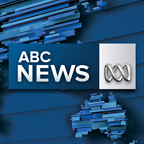
Updated
Picking a performer and song to represent your country at Eurovision is always a risky business, and this year's choice of Isaiah Firebrace for Australia is no exception.
Many countries in Europe go with a TV competition, with the winner decided at least in part by a public vote.
Other nations, like Australia, take another option and hold what is called an internal selection, with organisers naming their song and a singer or group in a prepared release.
There are clear reasons why SBS has chosen Firebrace for this year's Eurovision.
He is young, presents well and has a fine voice, and he is a familiar figure for Australian audiences to get behind as the most recent winner of the X-Factor on Channel Seven.
On the show the 17-year-old performed a series of songs, from Sam Cooke's soul classic A Change Is Going To Come to Pharrell Williams' Happy and Beyonce's Halo that displayed his range as a performer and a singer.
The commercial release of his winning single, It's Gotta Be You, last November made it a good fit for the Eurovision rules, which state that songs cannot be released before September 1 of the year before the contest — but time will tell as to how his entry into the contest, Don't Come Easy, will fare.
Is age a factor?
It is a big step from performing in a TV studio to singing in front of a crowd of 8,000 and an estimated worldwide TV audience of 300 million.
Both of Australia's previous entrants, Guy Sebastian and Dami Im, came via the same route of reality television, winning Australian Idol and the X-Factor respectively.
The difference is that Dami was 27 when she performed for Australia on the Eurovision stage in Stockholm, and Guy had more than a decade in the music business when he was picked to perform in 2015.
Prior to them, Jessica Mauboy — another Idol competitor — had had eight years of experience in professional performing before she sang Sea of Flags as Australia introduced itself to Eurovision at half-time in the 2014 contest.
In contrast, of the 61 previous winners of Eurovision, only Belgium's Sandra Kim — who lied about her age when she won at just 13 years old in 1986 — was younger than Isaiah will be when he performs in Kiev.
Is Australia on the nose at Eurovision?
Another element to consider is the double-edged sword of Australia's special status in Eurovision.
The novelty factor from Australia's arrival in the competition is rapidly fading, and there are many fans in Europe who still question the need for an entry from the Antipodes.
So far, Australia's competitors and entries have been of a high standard — with strong songs and performers who were able to handle the pressure of the biggest musical TV event in the world.
The fortunes of countries in Eurovision can change very quickly, however.
Ireland, for example, won the contest four times in five years between 1992 and 1996, but has been voted into the top 10 only five times in the 20 years since.
The Irish came last in 2013, and have failed to qualify for the final in 2014-2016.
Finally, at Eurovision, the staging and the arrangement is as important as the song itself — some songs look like winners when they are chosen, but disappear in the contest because they are swamped by similar numbers that are more visual or find a way to attract the televoters of Europe on a Saturday night.
Right now, Don't Come Easy sounds solid, but not the kind of spectacular standout song you need to win, like Dami Im's Sound of Silence which came second in 2016.
Australian fans will be hoping that both the song and the performance in May can live up to expectations, and deliver another strong result.
Topics: arts-and-entertainment, music-industry, australia
First posted









 Add Category
Add Category